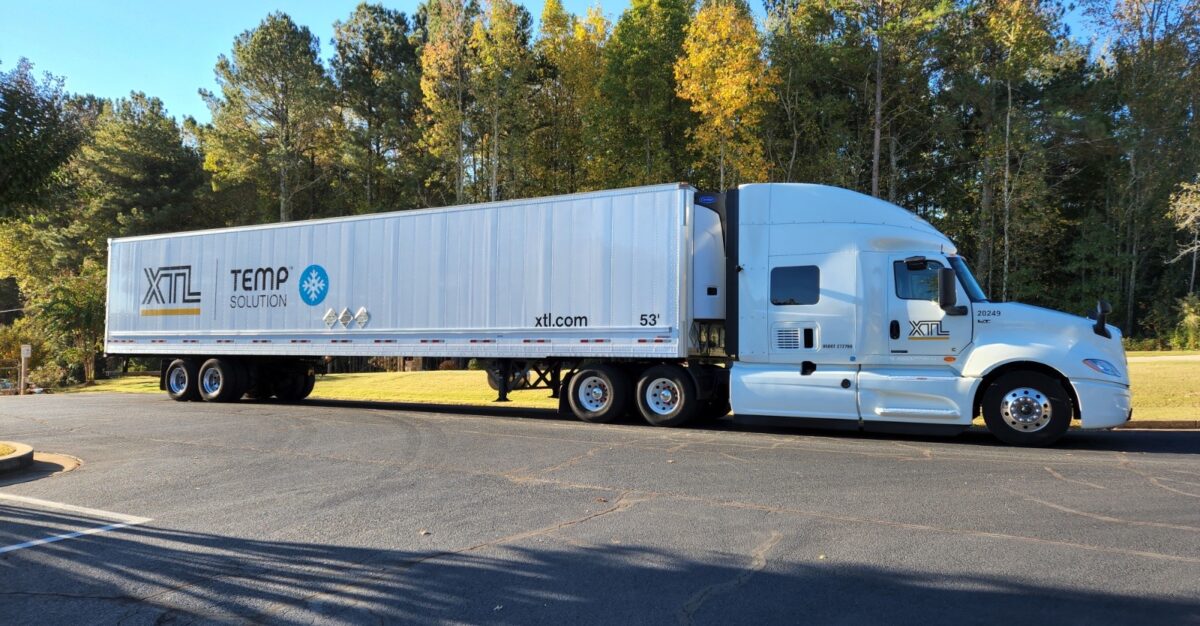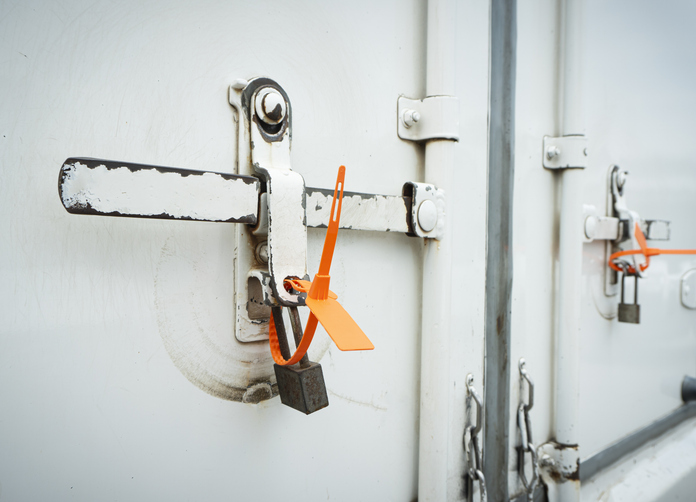Transporting food products safely is essential to ensure they remain fresh and free from contamination. Here are some best practices to follow:
1. Sanitation and Cleanliness
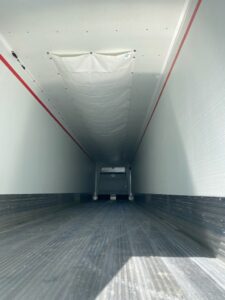
Maintaining cleanliness in transport vehicles is paramount. This includes regular cleaning and sanitization of trailer interiors to prevent contamination. Ensure that the materials used in the trailer are easy to clean and free from damage.
XTL Transport’s trailers are lined with materials compatible with the transportation of both raw and processed products allowing for ease of cleaning and sanitation. Under XTL’s stringent Trailer Sanitation Policy, trailer interiors are thoroughly cleaned and sanitized during regular maintenance and inspected for any damage to trailer linings or door seals. All defects are repaired before the trailer is returned to service. On the road cold water washouts are utilized for dry material on the walls or floors that cannot be swept away and hot water washouts with soap are utilized when there is blood or meat residue present, or the trailer has a noticeable or objectionable odor.
2. Temperature Control
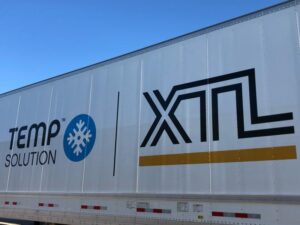 Proper temperature control in transport is critical for food safety. Utilize advanced technology for real-time monitoring and adjustment of temperatures in refrigerated units. Ensure the vehicles can maintain a wide range of temperatures to accommodate different types of food products.
Proper temperature control in transport is critical for food safety. Utilize advanced technology for real-time monitoring and adjustment of temperatures in refrigerated units. Ensure the vehicles can maintain a wide range of temperatures to accommodate different types of food products.
XTL Transport uses Orbcomm 2-way communication technology which allows for live temperature checks and remote temperature adjustments. XTL Trailers have a temperature range of (–20)’F-95’F.
3. Regulatory Compliance
It is important to understand the regulations in all operating jurisdictions and the regulations for the different types of products being transported. For example, a shipment of fresh meat may be subject to mandatory inspections, particularly when crossing borders, whereas dry, packaged products may not. Inspections require proper planning to prevent hour-of-service issues with time-sensitive shipments.
As a cross-border carry operating in both Canada and the U.S., XTL adheres to the regulations set out by the Canadian Food Inspection Agency (CFIA), the Food and Drug Administration (FDA)’s Food Safety Modernization Act (FSMA) and follows strict guidelines to ensure the safe transit of food products.
4. Proper Loading and Sealing
Ensure that all loads are properly sealed to prevent contamination during transit. Proper loading techniques should also be followed to maintain the integrity of the food products.
XTL Transport requires all loads to be sealed. If the shipper does not provide one, the driver uses a seal of their own as part of their due diligence.
5. Emergency Preparedness
Have a plan in place for handling emergencies during transit. This includes having a logistics team ready to address any issues with the transportation unit, such as temperature fluctuations, and securing backup solutions if necessary.
XTL’s operations team can promptly address any issues with the transportation unit, such as temperature fluctuations, and secure backup solutions if necessary. XTL’s reefer technology, Orbcomm sends notifications during temperature fluctuations or variances allowing immediate action to be taken, including transloading the shipment when necessary to protect the integrity of the load.
6. Staff Training
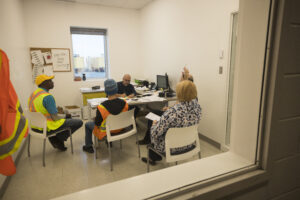 Ensure that all staff involved in the transportation process are trained in food safety regulations and best practices. This includes regular training sessions and assessments to keep staff updated on the latest guidelines and technologies.
Ensure that all staff involved in the transportation process are trained in food safety regulations and best practices. This includes regular training sessions and assessments to keep staff updated on the latest guidelines and technologies.
XTL Transport’s staff undergo training on the FDA’s Sanitary Transportation Rules, including a comprehensive training video and online test. In addition, XTL Distribution staff undergo training in Good Manufacturing Practices and Food Safety to maintain HACCP Certification and AIB International Accreditation across all XTL distribution centers.
7. Regular Inspections
Conduct regular inspections of trailers and equipment to ensure they are in good working condition.
 XTL runs new model equipment to reduce downtime and has a comprehensive in-house maintenance program where thorough inspections are conducted during regular maintenance checks. In between regularly scheduled maintenance, daily inspections are conducted by the driver. All inspections check for cleanliness and any damage to linings, door seals, and other components.
XTL runs new model equipment to reduce downtime and has a comprehensive in-house maintenance program where thorough inspections are conducted during regular maintenance checks. In between regularly scheduled maintenance, daily inspections are conducted by the driver. All inspections check for cleanliness and any damage to linings, door seals, and other components.
8. Use of Technology
Leverage technology to enhance food safety during transportation. This includes using sensors for real-time monitoring, GPS for tracking, and automated systems for reporting any issues promptly.
XTL’s tractors and trailers are equipped with the latest technologies to reduce downtime, improve safety, increase fuel efficiency and ensure the product arrives on time and in full.
9. Documentation and Record-Keeping
Maintain thorough documentation of all processes and procedures related to food transportation.
XTL Transport keeps detailed records of cleaning schedules, temperature logs, and any incidents that occur during transit.
10. Communication

Maintain open communication with all parties involved in the transportation process. This includes shippers, drivers, and logistics teams to ensure that everyone is aware of their responsibilities and any potential issues can be addressed promptly.
XTL has dedicated logistics teams with specialized roles that are assigned based on advanced operational knowledge of specific industries or regional expertise. Teams work closely across all divisions and operational segments. Operating as a single point of contact ensures transparent communication flows quickly, and issues are circumvented or resolved timely.
By following these best practices, companies can ensure that food products are transported safely and arrive at their destination in optimal condition. Prioritizing food safety in transportation not only protects public health but also builds trust with consumers and business partners.
For more insights on food transportation safety, visit XTL Transport.
